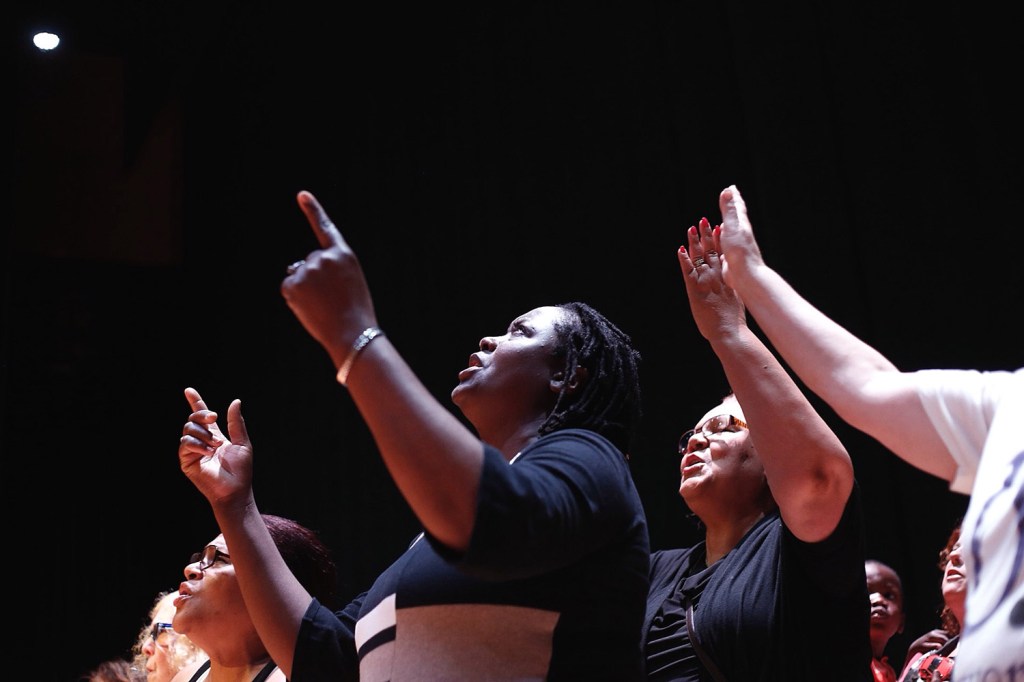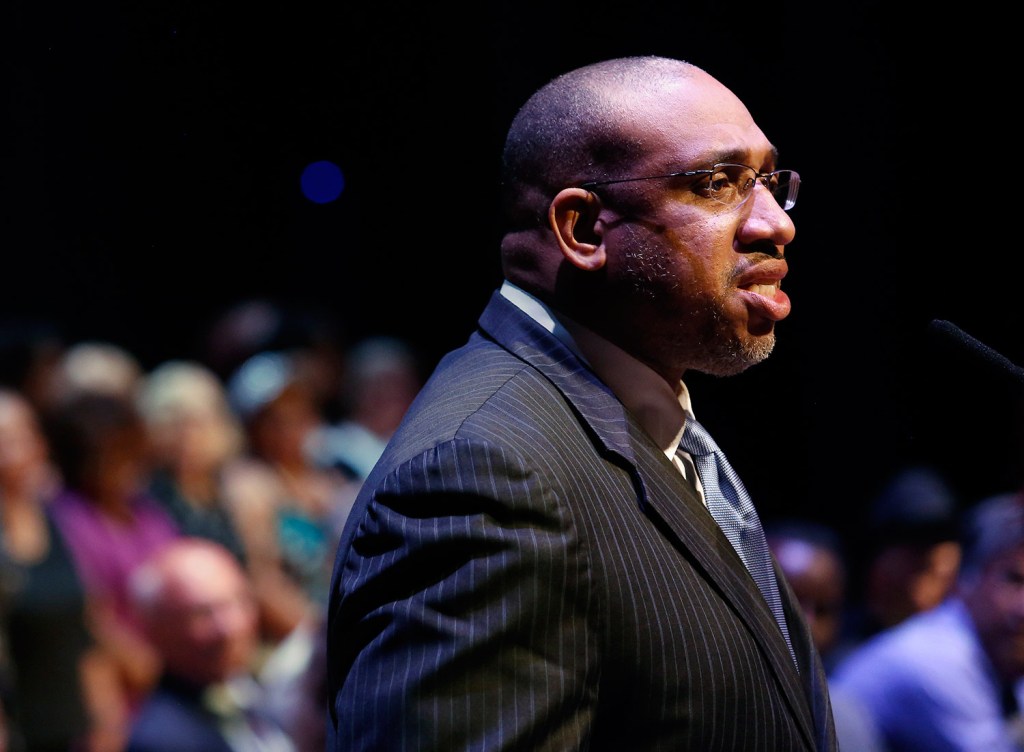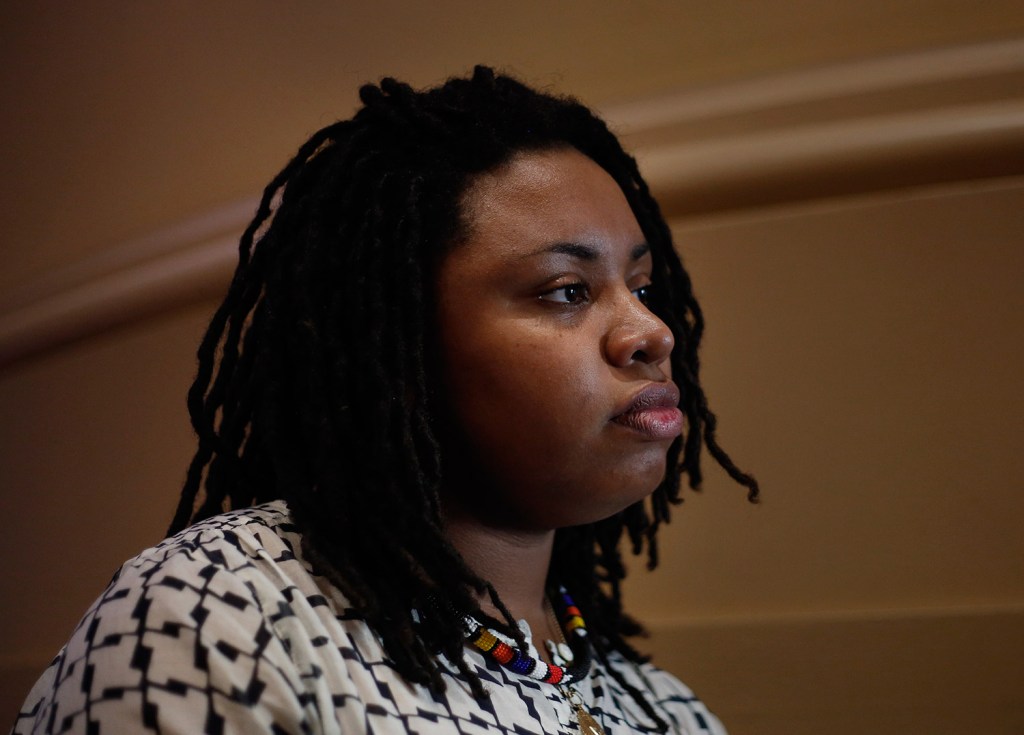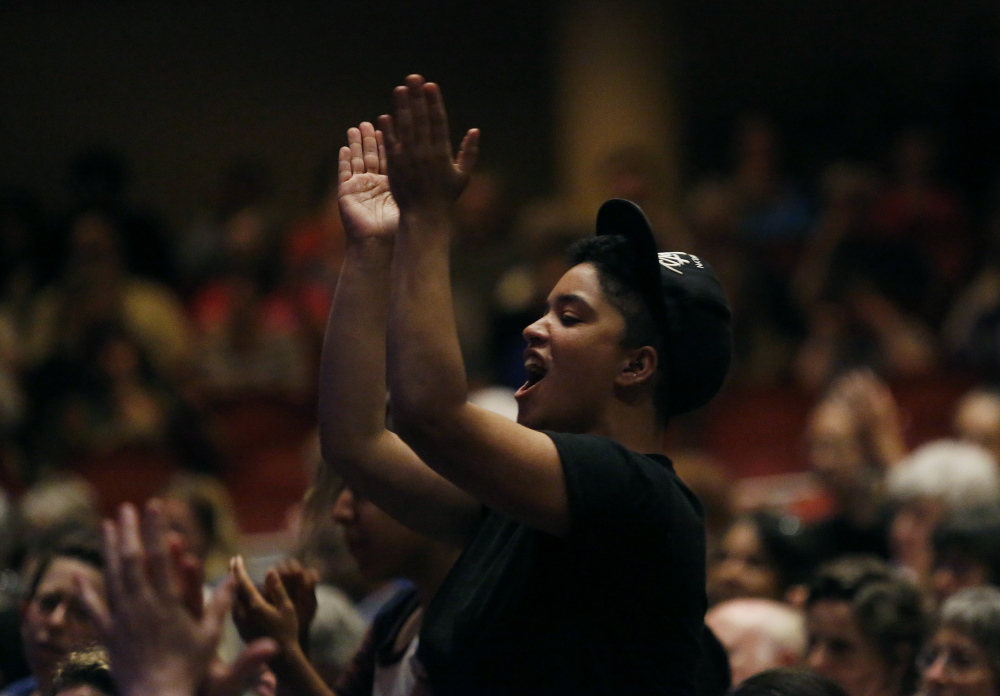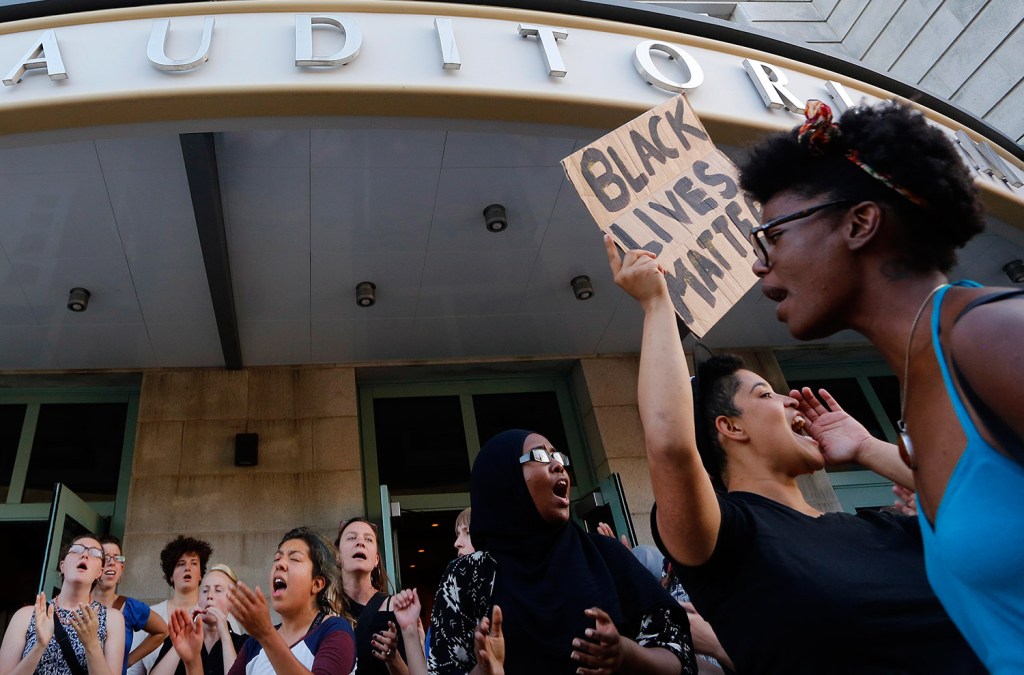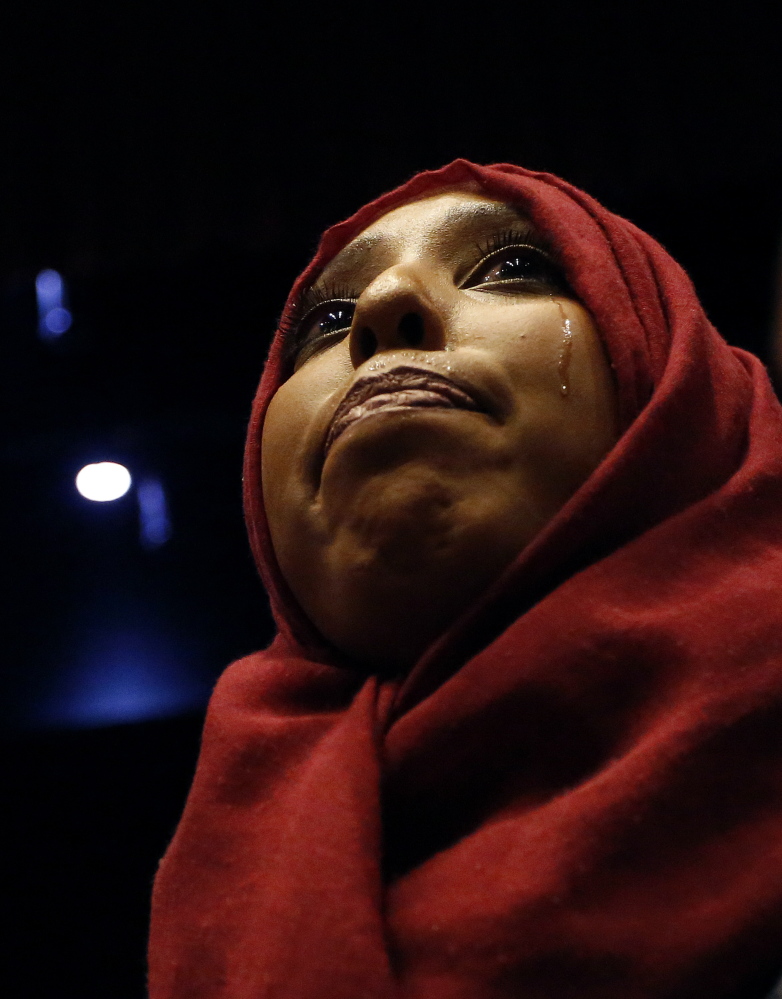More than 1,300 people came together in Portland on Monday to remember the nine people who were gunned down last week at a church in Charleston, South Carolina, in a tribute that was by turns somber and fiery, loving and angry.
“Every single day members of my community and your community reap the fruit of hatred and racism on their jobs, on the streets, in their schools, everywhere they go,” said the Rev. Kenneth Lewis, pastor of Green Memorial A.M.E. Zion Church and an organizer of the event at Merrill Auditorium. “So we can gather and cry, or we can stand and make a difference.
“Don’t be distracted by homelessness,” he told the crowd, to repeated rounds of applause. “We’re talking about racism.”
The nine people were gunned down during a Bible study group at the Emanuel African Methodist Episcopal Church in Charleston on Wednesday night. Suspect Dylann Roof, a white 21-year-old, reportedly made racist comments during the shootings. Afterward, his white-supremacist writings were discovered online.
On Monday night, people lined the walls of Merrill Auditorium, standing throughout the hour-plus gathering that included prayers, gospel music from the Green Memorial A.M.E. choir and a reading of Maya Angelou’s “Still I Rise,” with its cutting line:
“You may kill me with your hatefulness,
But still, like air, I’ll rise.”
The remarks by various religious and civic leaders were frequently punctuated by clapping and standing ovations. The gathering began with a somber reading of the victims’ names and the beating of a drum, and ended with audience members loudly chanting “black lives matter” for more than 10 minutes as people exited the auditorium.
Hamdi Hassan, a 19-year-old University of Southern Maine student, wept as she hoarsely cried out “black lives matter” from the center rows of the auditorium.
“I’m so tired. I’m just tired,” Hassan said later. “I’m happy that I’m black. I think it’s beautiful. But it’s just difficult when people hate my skin color.”
U.S. Rep. Chellie Pingree delivered some of the most pointed political comments during the memorial, criticizing gun control opponents and Gov. Paul LePage’s longstanding effort to deny General Assistance to asylum seekers.
“What about guns? Nobody wants to talk about the guns,” she said, interrupted by loud applause. “I believe we have to stop justifying killing by cowering to this notion that it is a sacred right to bring any gun to any place whenever and wherever they want, that they have this sacred right to do this no matter whose life is in danger, who is gunned down or, in this case, how sacred the place was.”
Pingree noted that the gunman “got his counsel” from the Council of Conservative Citizens, a group that makes political donations.
“We can’t pretend tragedies like this happen in a vacuum,” she said. “I’m afraid we all know racism hasn’t gone away in our country.”
Even in Maine, she said, “there are people who believe people fleeing their war-torn countries don’t even deserve a hand up,” she said, as the crowd rose in a standing ovation. “I see you all strongly stand in favor of giving them that support.”
Pingree urged the crowd to take action going forward.
“In the summer of 1963, we faced racism head on and it brought about big changes and moved us forward when we thought we never could,” she said. “It is time to face it head on again and fight for justice.”
Penobscot Tribal Elder Donna Loring urged people to remember that racism was the root cause of the shooting.
“The gun was not the cause. The cause and the core of these murders and other murders and genocide that have occurred in this country can be tied to one thing, and one thing only: racism,” she said. “And that is not an Indian problem. That is not a black problem. That is not an Asian problem. That is not a Latina problem. The problem is an American problem.”
In a moment of wry humor, she noted that the gunman in Charleston said he wanted to start a race war in the country.
“I have news for him. The race war started in 1492,” Loring said.
Other speakers included Portland Mayor Michael Brennan, City Councilor Ed Suslovic and a videotaped message from U.S. Sen. Angus King.
“We grieve but we are consoled, because we know that love will always triumph over hate,” King said. “We have a responsibility to name hate when we see it. We still see far too much of it in America today.”
The gathering was a comfort to Nicole Mokeme, a member of Green Memorial A.M.E. Zion church.
“It’s been hard. I’ve been angry,” Mokeme said of the days since the shooting. “Tonight was about unity and taking action for peace.”
Rev. Lewis’ 24-year-old daughter, Chanel Lewis, said the racism behind the shooting “has been boiling in our nation for a long time.”
“We have to be honest. Racism is the foundation of this country. This isn’t just a black issue. This is a society issue,” she said.
“That really could have been my dad,” Chanel Lewis said, adding that she spent the night crying after hearing about the shooting. “I woke up and I hurt my hand – punching a closet. For the first time in my life I felt an anger, I felt a darkness. I felt hopeless.”
“I don’t know what to think,” she said. “Yesterday in church, a 90-year-old black woman was crying. Will she ever see more progress?”
Rev. Lewis said he was not dwelling on why the gunman acted in the past, but what needs to be done in the future.
“I say there is not an answer to the question as to ‘why.’ I don’t even want to understand the ‘why,’ ” he said. “I have to impact the people I’m around. I want the circle to be larger.”
Former state Rep. Gerald Talbot of Portland, Maine’s first black legislator, said he was glad for the gathering, but it was too familiar.
“We’ve gone through this before,” the longtime activist said. “We keep saying we’ve got to stand up. Too many lives have been lost.”
Comments are not available on this story.
Send questions/comments to the editors.


